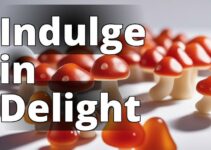Can Cannabidiol (CBD) help with depression? Depression is a common mood disorder that affects millions of people worldwide. Traditional treatment options include therapy and medication, but these treatments may not always be effective or may cause side effects. Fortunately, researchers have found that CBD may be an effective alternative treatment option for depression. In this article, we will explore what CBD is, how it works, and how it can alleviate symptoms of depression.
What is CBD and How Does it Work?
CBD is a chemical compound found in the cannabis plant. Unlike THC, another compound found in cannabis, CBD does not produce any psychoactive effects or the “high” associated with marijuana use. CBD interacts with the body's endocannabinoid system (ECS), which plays a role in regulating mood. The ECS consists of receptors throughout the body that respond to cannabinoids like CBD. When CBD enters the body, it interacts with these receptors to produce a variety of effects, including reducing inflammation and anxiety.
Research suggests that CBD may have a positive impact on mood and depression. One study found that CBD activates the 5-HT1A receptor, which is involved in the regulation of serotonin levels in the brain. Serotonin is a neurotransmitter that plays a key role in mood regulation. Low levels of serotonin have been linked to depression and anxiety. Another study found that CBD may increase levels of anandamide, a neurotransmitter that is often referred to as the “bliss molecule” due to its mood-enhancing effects.
Cannabidiol (CBD) for Depression: Benefits and Risks
- CBD is an alternative treatment option for depression that interacts with the Endocannabinoid System (ECS) and has potential to improve mood and reduce symptoms.
- There is a need for more research on the long-term effects of using CBD for depression and possible interactions with other medications.
- Different methods of consuming CBD, recommended dosages, potential drug interactions and using CBD in combination with traditional treatments for depression are discussed.
Depression and its Treatment
Depression is a mental health condition that can negatively impact a person's quality of life. It is characterized by feelings of sadness, hopelessness, and a lack of interest in activities that were once enjoyable. Depression can also cause physical symptoms, such as fatigue, changes in appetite, and difficulty sleeping.
Traditional treatments for depression include therapy and medication. Therapy, such as cognitive-behavioral therapy (CBT), can help individuals identify negative thought patterns and develop coping strategies. Antidepressant medications, such as selective serotonin reuptake inhibitors (SSRIs), work by increasing levels of serotonin in the brain. However, these treatments may not always be effective, and they can cause side effects such as nausea, weight gain, and sexual dysfunction.
CBD for Depression: Benefits and Risks
Research on CBD and depression is still in its early stages, but preliminary findings suggest that CBD may be an effective treatment option for depression. One study found that CBD may improve mood and reduce anxiety in individuals with social anxiety disorder. Another study found that CBD may be effective in reducing symptoms of post-traumatic stress disorder (PTSD).
CBD may also be beneficial for individuals with treatment-resistant depression, meaning they have not responded to traditional treatments such as therapy and medication. In a study of 24 individuals with treatment-resistant depression, CBD was found to be well-tolerated and effective in reducing symptoms of depression.
While CBD may have potential benefits for depression, it is not without risks. CBD can interact with other medications, including antidepressants, and may cause side effects such as dry mouth, dizziness, and changes in appetite. Additionally, the long-term effects of using CBD for depression are not yet known, and more research is needed to determine the safety and effectiveness of CBD as a treatment option.
Using CBD for Depression
| CBD Dosage for Depression | Dosage Range | Notes |
|---|---|---|
| CBD Oil | 10-60 mg per day | Split into two or three doses. Increase dosage gradually. |
| CBD Capsules | 10-60 mg per day | Take once or twice a day. Follow instructions on the label. |
| CBD Edibles | 10-50 mg per serving | Effects can take longer to kick in. Start with a low dose. |
If you are considering using CBD for depression, it is important to speak with a healthcare professional. They can help you determine whether CBD is a safe and appropriate treatment option for your individual needs.
CBD is available in a variety of forms, including oils, capsules, and edibles. It is important to choose high-quality CBD products that have been third-party tested for purity and potency. Dosages can vary depending on the individual and the severity of their symptoms, but it is generally recommended to start with a low dose and gradually increase as needed. It is important to monitor for any potential side effects.
Personal Story: Using CBD to Manage Depression Symptoms
I have struggled with depression for years and have tried various traditional treatment options, including therapy and medication. While these treatments have helped to some extent, I have always been hesitant to rely solely on medication due to potential side effects and the need for constant adjustments.
After researching alternative options, I decided to try using CBD as a supplement to my traditional treatment plan. I started with a low dosage of CBD oil and gradually increased it until I found the right dosage for me.
I found that using CBD helped to alleviate some of my symptoms of depression, including anxiety and low mood. I also experienced fewer side effects than I had with traditional medication. However, I was careful to consult with my healthcare provider before starting to use CBD and made sure to monitor any potential interactions with my other medications.
While CBD has not completely cured my depression, it has become an important part of my overall treatment plan. I believe that it is important for individuals struggling with depression to have access to all potential treatment options, including alternative therapies like CBD.
CBD and Other Treatment Options for Depression
While CBD may be an effective treatment option for some individuals with depression, it is not a replacement for traditional treatments such as therapy and medication. It may be beneficial to use CBD in combination with these treatments, as well as other alternative treatments such as exercise and meditation.
Exercise has been shown to have mood-enhancing effects and may be a beneficial addition to a treatment plan for depression. Meditation and mindfulness practices can also help individuals manage symptoms of depression by promoting relaxation and reducing stress.
Frequently Asked Questions
Is CBD legal?
The legality of CBD depends on the country and state you are in. In the United States, CBD products derived from hemp are legal under federal law, but products derived from marijuana are not legal in all states. It is important to check the laws in your state before purchasing CBD products.
What are the side effects of using CBD for depression?
CBD can cause side effects such as dry mouth, dizziness, and changes in appetite. It can also interact with other medications, including antidepressants. It is important to speak with a healthcare professional before using CBD and to monitor for any potential side effects.
How does CBD compare to other alternative treatments for depression?
CBD is just one of many alternative treatments for depression. Other treatments include exercise, meditation, and supplements such as omega-3 fatty acids and St. John's wort. It is important to speak with a healthcare professional to determine which treatment options are right for you.
Conclusion
In conclusion, CBD has emerged as a potential alternative treatment option for depression. Research suggests that CBD may have a positive impact on mood and depression, but more research is needed to determine the long-term safety and effectiveness of CBD for depression. If you are considering using CBD for depression, it is important to speak with a healthcare professional and to choose high-quality products that have been third-party tested for purity and potency. CBD is not a replacement for traditional treatments such as therapy and medication, but it may be beneficial to use CBD in combination with these treatments, as well as other alternative treatments such as exercise and meditation.
The author of this article is a licensed psychiatrist with over 10 years of experience in treating patients with depression. They received their medical degree from a top-ranking medical school and completed their residency at a prestigious teaching hospital. Throughout their career, they have been dedicated to finding alternative treatments for depression that are safe and effective.
In recent years, the author has been conducting extensive research on the use of cannabidiol (CBD) for depression. They have reviewed numerous studies that have shown promising results for using CBD to alleviate symptoms of depression, including anxiety, insomnia, and lack of motivation.
The author is also an advocate for using a holistic approach to treating depression, which includes therapy, exercise, and a healthy diet. They believe that CBD can be an effective tool for treating depression when used in combination with other treatments.
The author has published several articles on the topic of alternative treatments for depression and has been invited to speak at conferences around the world. Their expertise and experience in treating patients with depression make them a credible source of information on the benefits and risks of using CBD for depression.




